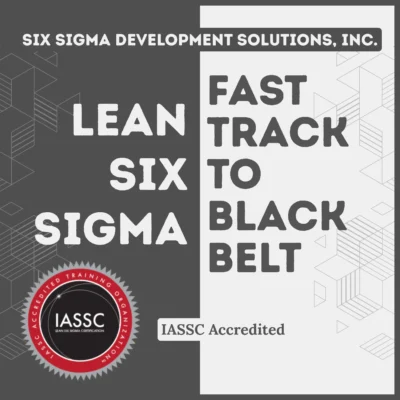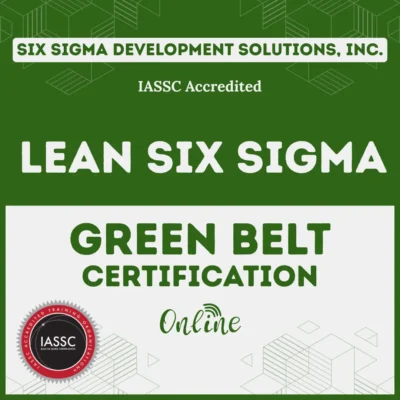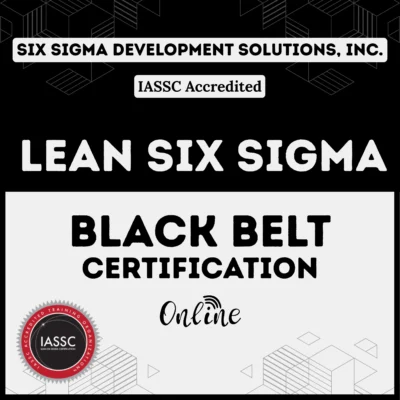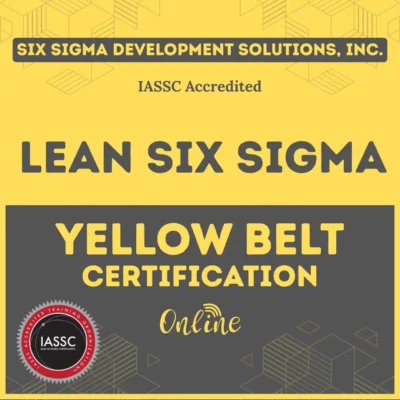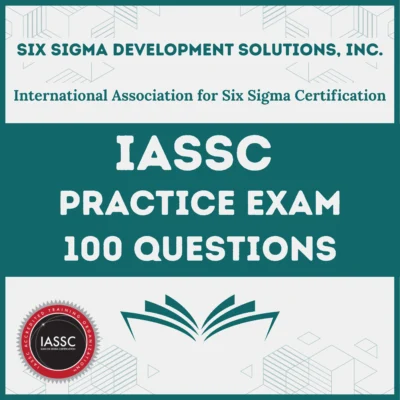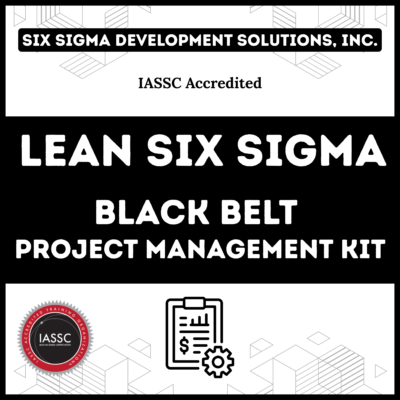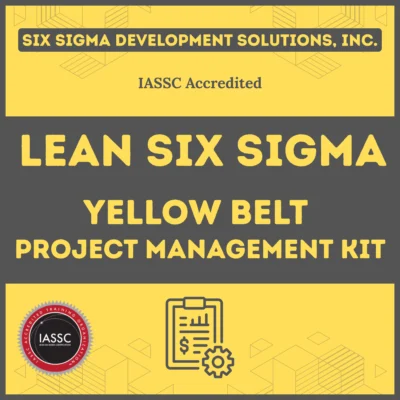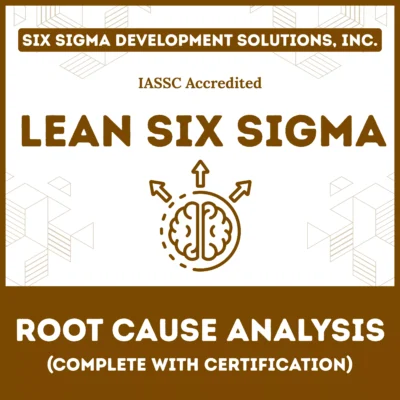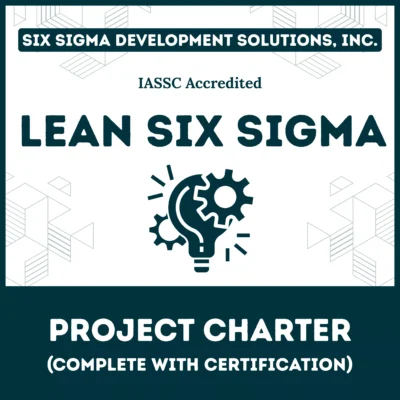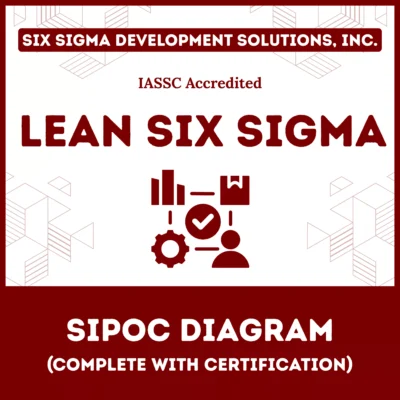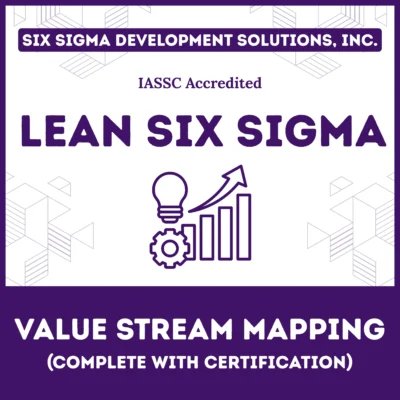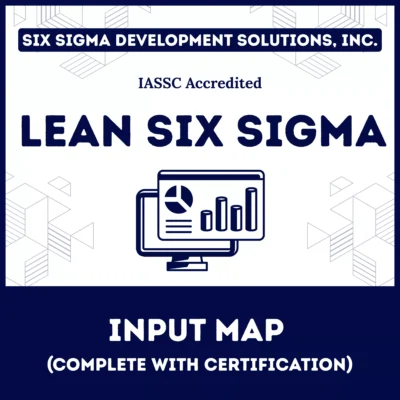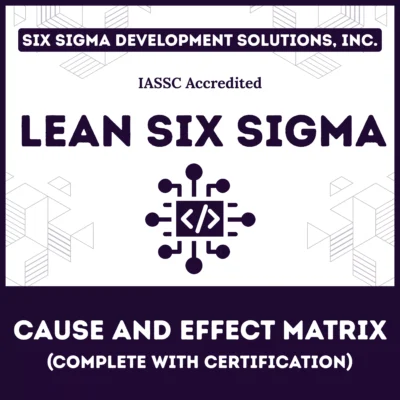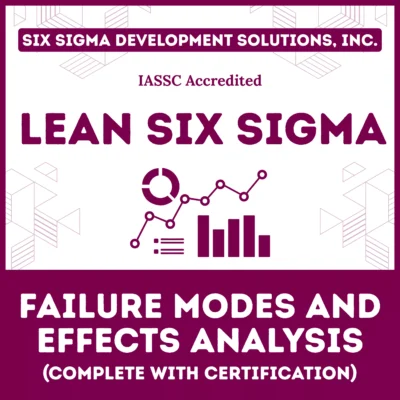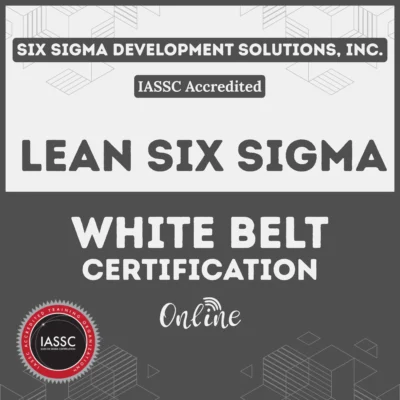Table of contents
- 10 Best Lean Six Sigma Books to Read
- 1-. Why They Fail and The Simple Key to Success
- 2. The Certified Six Sigma Black Belt Handbook
- 3. The Lean Six Sigma Pocket Toolbook
- 4. Six Sigma Black Belt Statistics
- 5. How to Maximize Your Change and Improvement Activities
- 6. The Six Sigma Way Team Fieldbook: an Implementation Guide for Process Improvement Teams
- 7. Six-Sigma: A Complete Guide Step-by-Step: A Complete Reference & Training Guide for White Belts and Yellow Belts
- 8. What is Lean Six Sigma?
- 9. The goal: a process of continuous improvement
- 10. The Six Sigma Handbook – A Complete Guide for Managers of All Levels
- Conclusion
10 Best Lean Six Sigma Books to Read
Reading the right Lean Six Sigma books can transform how you approach process improvement, quality management, and leadership. Whether you are preparing for a Lean Six Sigma certification or simply want to strengthen your understanding of continuous improvement, these top 10 books will help you master the principles that define world-class organizations.
Lean Six Sigma combines two proven methodologies: Lean, which focuses on reducing waste, and Six Sigma, which aims to eliminate variation and defects through data-driven analysis. Together, they create a system that drives operational excellence, improves efficiency, and maximizes customer satisfaction across industries—from manufacturing and healthcare to finance and IT.
Why Read Lean Six Sigma Books?
Lean Six Sigma is more than a set of tools. It’s a mindset of continuous improvement. Books on this topic help professionals understand real-world applications of methods like DMAIC, Kaizen, and Root Cause Analysis, while also preparing them for certifications such as Green Belt, Black Belt, and Master Black Belt.
These books provide both foundational knowledge and advanced strategies for applying Six Sigma principles in real organizations.
1-. Why They Fail and The Simple Key to Success
By Kevin Clay
Learn why over 90% of continuous improvement efforts fail within 18 months—and how to prevent it. This book reveals six real-world failure scenarios and the five major reasons companies struggle to sustain improvement. You’ll also discover seven proven steps to build a lasting continuous improvement culture.
Best for: Leaders building long-term CI programs and teams driving organizational change.
2. The Certified Six Sigma Black Belt Handbook
By T.M. Kubiak and Donald Benbow
A must-read for anyone preparing for the Six Sigma Black Belt exam. This updated handbook by the American Society for Quality (ASQ) includes exercises, tables, and real examples that make complex statistical concepts clear and actionable.
Best for: Black Belt candidates and advanced practitioners.

3. The Lean Six Sigma Pocket Toolbook
By Michael L. Jones & John Maxey
A compact yet comprehensive guide covering over 70 Lean and Six Sigma tools. Organized by purpose and usage, this book is perfect for quick reference during projects and certification prep.
Best for: Practitioners who want quick, on-the-job guidance.
4. Six Sigma Black Belt Statistics
By Matthew A. Barsalou
An essential reference for Six Sigma Black Belts. Each statistical method is categorized by DMAIC phase, making it easy to find exactly what you need when analyzing data.
Best for: Engineers and analysts focused on statistical process control.
5. How to Maximize Your Change and Improvement Activities
By Peter S. Pande Robert P. Neuman and Roland Cavanagh
This classic book explains the foundations of Six Sigma and how companies implement it to achieve breakthrough improvements. Updated with current practices and case studies, it’s a practical guide to real-world implementation.
Best for: Business leaders and managers new to Six Sigma.
6. The Six Sigma Way Team Fieldbook: an Implementation Guide for Process Improvement Teams
By Peter S. Pande
A hands-on companion to The Six Sigma Way, this fieldbook includes checklists, worksheets, and tools to help teams plan and execute successful improvement projects.
Best for: Team leaders and CI facilitators.
7. Six-Sigma: A Complete Guide Step-by-Step: A Complete Reference & Training Guide for White Belts and Yellow Belts
By Craig Joseph Setter and The Council for Six Sigma Certification
An in-depth training guide for White Belts and Yellow Belts. This book helps beginners and organizations introduce Six Sigma and Lean Six Sigma principles across departments.
Best for: Beginners and internal trainers.
8. What is Lean Six Sigma?
By Michael L. George & David Rowlands
This book breaks down Lean Six Sigma in simple, actionable terms. It explores key concepts like speed, quality, teamwork, and data-driven decision-making.
Best for: Professionals seeking a big-picture understanding.
9. The goal: a process of continuous improvement
By Eliyahu M. Goldratt
A business novel that changed how companies think about efficiency. Follow a plant manager who must save his factory by applying the Theory of Constraints and Lean principles.
Best for: Anyone who learns best through storytelling and real scenarios.
10. The Six Sigma Handbook – A Complete Guide for Managers of All Levels
By Thomas Pyzdek & Paul A. Keller
A go-to resource for managers who want to integrate Six Sigma into their operations. It covers management strategy, problem-solving tools, and case studies.
Best for: Executives and quality professionals.

Conclusion
The right Lean Six Sigma book can accelerate your learning, improve your certification readiness, and help you apply best practices in your career. Each of these books deepens your understanding of process improvement, quality control, and continuous improvement culture.
If you want to take the next step, explore our Lean Six Sigma Green Belt Certification and Black Belt Certification to apply what you learn in real projects.
Frequently Asked Questions (FAQ)
1. What is the best Lean Six Sigma book for beginners?
What is Lean Six Sigma? by Michael L. George and David Rowlands is a great starting point. It explains core principles in simple terms and helps you understand how Lean and Six Sigma work together.
2. Which book is best for Six Sigma Green Belt preparation?
The Certified Six Sigma Black Belt Handbook and The Lean Six Sigma Pocket Toolbook are ideal for both Green Belt and Black Belt exam prep.
3. Can reading Lean Six Sigma books help with certification exams?
Yes. Books help reinforce the DMAIC framework, tools, and formulas used in exams. They also provide case studies to connect theory with real applications.
4. Are these books useful for industries beyond manufacturing?
Absolutely. Lean Six Sigma principles apply across healthcare, finance, IT, and logistics — anywhere process improvement is needed.
5. How do Lean and Six Sigma differ?
Lean eliminates waste and improves speed. Six Sigma reduces variation and defects. Together, they create efficient, predictable systems.
6. Where can I learn Lean Six Sigma online?
You can start with certified courses from Six Sigma Development Solutions Inc., offering accredited online Green Belt and Black Belt training for professionals worldwide.




